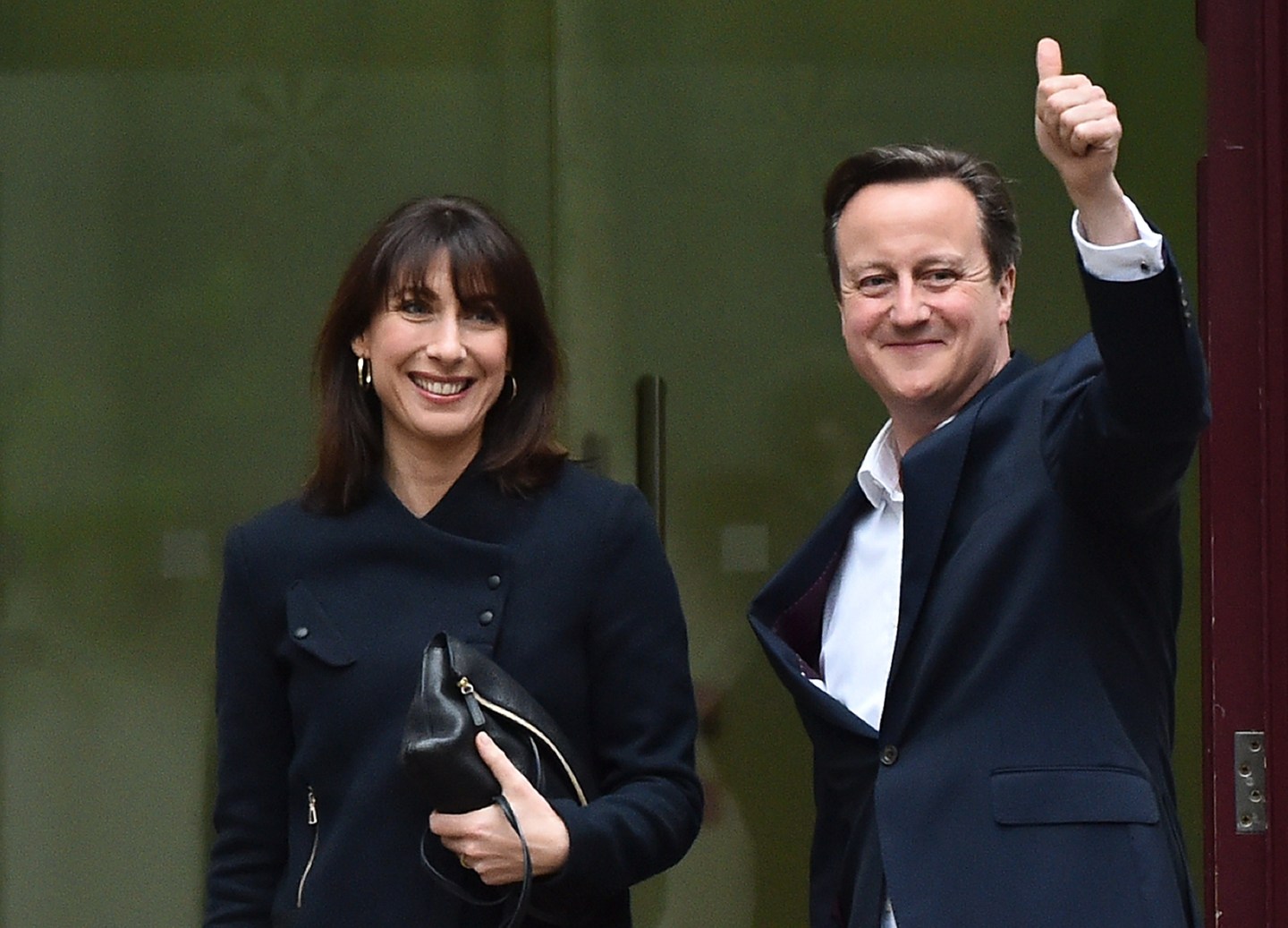Prime Minister David Cameron’s Conservative party stormed to a surprise victory in the U.K.’s general election, defying opinion polls that had universally predicted the poll would end in deadlock and a new coalition government.
The ‘Tories’ owed their victory to two big collapses by their foes.
The center-left Labour Party was all but wiped out in Scotland, where it has been dominant for the last 30 years, as the separatist Scottish National Party won 56 of the 59 seats up for grabs.
At the same time, the Conservatives profited most from a sharp drop in support in England and Wales for the centrist Liberal Democrats, who have been their junior partner in government for the last five years.
With only 15 of the 650 district results still to come in, the Conservatives had won 320 seats, and were in line to win 329 according to BBC estimates–a wafer-thin absolute majority of eight.
In a night full of shocks, the biggest was the size of the discrepancy between the actual result and the opinion polls ahead of time. Not one poll had indicated an overall Tory majority, and polls throughout the campaign had showed no real variation in support from one day or week to the next. On the eve of the vote, all polls had the two main parties within 2% of each other.
Financial markets reacted enthusiastically to the news–the pound rose 1.5% against the dollar to 10-week high, while the broad FTSE 250 index, which has a more U.K.-focused composition than the multinational-heavy FTSE 100, rose 2.7% to a new all-time high. U.K. government bond prices also rose.
While there is an emotional and self-interested component to that reaction–the City of London is dominated by Tory voters and the party’s manifesto was more overtly pro-business–much of the reaction is down to the removal of the uncertainty over potential coalition-building.
Analysts warned that the euphoria may soon wear off when the markets realize the implications of five years of exclusive Conservative rule. While voters appear to have trusted Cameron’s ability to deliver economic stability, Cameron’s program has political instability hardwired into it.
Not only has he promised a referendum on the U.K.’s membership of the E.U.–a prospect that deeply troubles most foreign investors in the U.K.–but his commitment to faster reduction of the budget deficit (still running at over 5% of GDP) is likely to antagonize the largely left-leaning Scots, raising the risk that the SNP will press for another referendum on independence. SNP leader Nicola Sturgeon, who had earlier ruled out a new referendum, said during the campaign it was a matter for the party’s manifesto at next year’s elections to the devolved Scottish parliament.
However, there was enough in the results to suggest that constitutional upheaval will be avoided. Holger Schmieding, a (German) economist working in London for Berenberg Bank, observed that the SNP support was less a vote for independence than a channel for anti-Tory sentiment, while the aggressively euroskeptic U.K. Independence Party garnered only 2 seats, less than a year after winning the elections to the European Parliament.
The SNP’s result “is not strong enough to make them feel safe that they could win a new independence referendum,” Schmieding said. “They would need a clear trigger such as ‘Brexit’ (i.e., a U.K. exit from the E.U.) to go for a new independence vote.”






